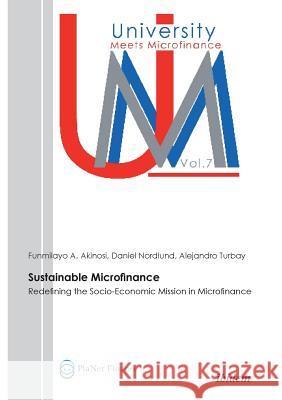Sustainable Microfinance. Redefining the Socio-Economic Mission in Microfinance » książka
Sustainable Microfinance. Redefining the Socio-Economic Mission in Microfinance
ISBN-13: 9783838203348 / Angielski / Miękka / 2012 / 108 str.
As stated by the Brundtland Report, the authoritative document on sustainable development, the pressure of poverty creates environmental stress by factors like overcrowded cities, deforestation, and overuse of marginal land. Alejandro Turbay, Funmilayo Akinosi, and Daniel Nordlund sought to find out how microfinance institutions (MFIs), who inherently cater to a largely poor clientele, could maximise their socioeconomic missions within ecologically beneficial limits. Turbay, Akinosi, and Nordlund defined sustainability through the Framework for Strategic Sustainable Development, a systematic, five-level approach for planning and making decisions. Subsequently, they created a principle-based model of their vision of a sustainable MFI , and then tested this model with executive-level practitioners of various microfinance institutions around the world. In this book, they present their findings:- The acceptance of ecological considerations into socio-economic missions is growing.- More and more 'green' funds are helping to turn environmental challenges into investment opportunities.- MFIs operating within ecologically beneficial manners can derive advantages including credit risk reduction, enhanced reputation, increased competitiveness, and improved earnings.- Surprisingly, incorporating ecological considerations turned out to be not necessarily expensive. Some activities like re-using materials could even be done without any additional costs.The book describes how MFIs can maximise the benefits by considering the inherent connections between their missions and ecological considerations.











